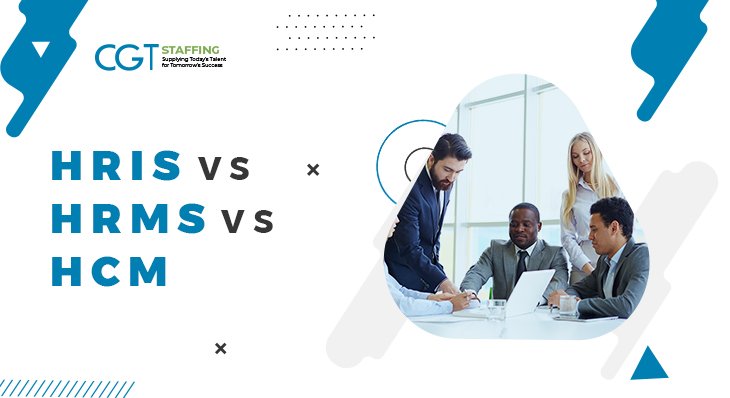With the ever-evolving role of HR departments, it is incumbent on businesses to leverage HR software to reduce clutter and increase productivity. Whereas common terms for these applications are HR solutions or HR management software, there are different types of applications with marked differences in their processes and capabilities. The type of software best suited to a company’s HR function depends on multiple factors, including the size of the organization and its software needs.
Read more to explore the differences between HR software and how their features compare.
Table of Contents
HRIS (Human Resource Information System)
A human resource information system is a straightforward HR solution that works as a platform to record employee data required to complete HR processes. Recording data manually on spreadsheets lowers productivity and affects accuracy. Moreover, failure to implement a standard format can make data confusing to use later.
An HRIS can record employee information from full names to social security numbers and other such forms of employee data. Some HRIS software offer HR metrics to help you shape future human resource management strategies.
This software can serve organizations with payroll and benefits management, employee tracking, attendance, and offering a self-service platform. However, the software’s limited features make it best suited to small businesses.
HRMS (Human Resource Management System)
The human resource management system has all the capabilities of an HRIS with some valuable additions such as tracking tool that outline an employee lifecycle at the company. This system is a successor to HRIS. An HRMS allows businesses to create personalized goals for business performance appraisal.
The system can also improve the ROI of an organization’s talent acquisition strategy by offering a multitude of features to assist in different stages of recruitment. A staffing agency or a company’s in-house recruitment team can leverage the features of creating and publishing job posts, receiving applications, and tracking talent through the recruitment pipeline. Depending on the software, it can even be constructed with capabilities to assist with paperwork and training programs.
Performance reviews and assistance with recruitment make HRMS a better choice for organizations over HRIS. Creating personalized tasks and exposing employees to learning opportunities can improve an organization’s employee turnover. Additionally, detailed metrics and analytics can assist businesses to make better large-scale staffing and personnel decisions.
HCM (Human Capital Management)
An HCM also has all the capabilities of an HRIS with some HRMS overlap. This software application is aimed at increasing the efficiency and effectiveness of the workforce. For example, HR departments equipped with HCM can offer health and wellness benefits to promote a healthier workforce. Similarly, organizations can push skill development initiatives through these systems.
Like HRMS, HCM can help with talent acquisition and managing employees. However, the software also has more advanced features compared to performance reviews to improve workforce effectiveness. Data-driven initiatives like setting fair employee compensation, improving employee productivity, and playing a significant role in the company’s growth.
Key features of this HR system are access to company data and workforce management and optimization. An HCM can be used instead of HRMS for most businesses. It is suitable for businesses with complex compensation and benefits systems. Additionally, organizations with multiple locations and advanced working models can leverage the software to their advantage.
Comparison of HRIS, HRMS, and HCM
In terms of features, first comes HRIS, then HRMS, and lastly HCM. The best choice out of the three depends on the unique requirements of businesses.
HRIS and HRMS
HRIS has employee information collecting and saving features alongside a basic self-service portal. The system is not capable of helping with hiring or improving the performance of employees. HRMS allows talent acquisition efforts and documentation. Companies like mortgage recruiters can benefit by adopting the latter.
HRMS and HCM
HRMS and HCM are both advanced HR solutions. An HRMS can help recruit and manage resources but attention to detail in training and improving the employee experience makes HCM a better option. Further businesses that have adopted WFH can track an employee’s performance better with HCM software.
HRIS and HCM
HRIS is suitable for small businesses where HCM can perform tasks for multinational businesses.
Conclusion
An underperforming HR software quickly lowers productivity. On the other hand, a complex and convoluted system can be hard to adopt over the long term. HR departments should prioritize the features they need and opt for the solution that proves best suited to the needs of the individual business.
